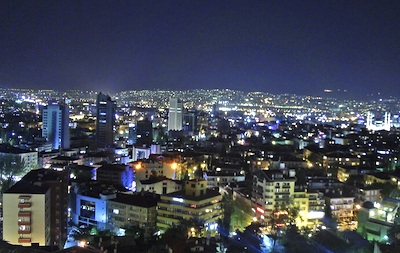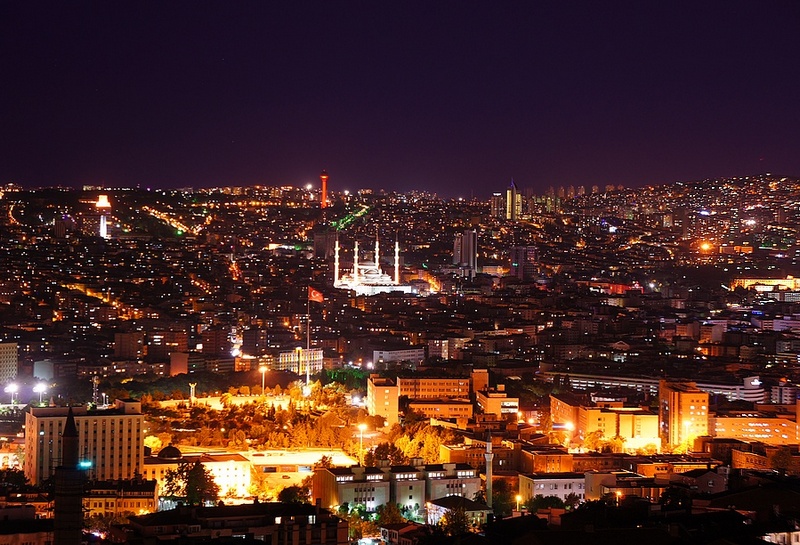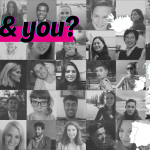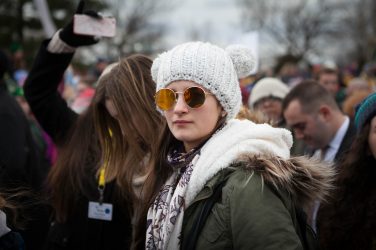On a Saturday night, Ankara’s only gay bar is crowded. But how many of the people dancing and drinking here actually identify as LGBT?
In Ankara, Turkey’s capital, LGBT people don’t have many options if they want to meet and party in a relaxed atmosphere. We take a trip to the city’s only gay club…

It is almost 1 a.m. on a Saturday night. The five of us, all students, are already drunk: to save money, we make sure we have a few drinks before going out. At the gate of the Sixties club, which is the only ‘gay’ bar in Ankara, a short period of bargaining takes place, to get us out of the entry fee. We emerge victorious, and one of us gets in without any fee.
It’s not the first time we’ve been here. It used to be called ‘Tribal’ and its venue was somewhere else. Now it’s in a very central area of Ankara called Tunalı. It seemed to be crowded enough and full of mostly gay men, some transvestites, transsexuals and very few lesbians. There are also heterosexuals, including three from our group, and others who are mostly there for the transvestites and transsexuals. There is no policy to allow only LGBTs: anyone who pays gets in. There are also people who are there to see what a ‘gay’ bar really is.
Gay life in Ankara is very different from gay life in Istanbul.
Some faces seem to be familiar from social networks of LGBTs, including internet dating sites. In countries like Turkey where homosexuality is not always welcomed respectfully, meeting each other on the internet becomes the mainstream way of making acquaintances. It is not so common to meet in gay bars and find partners, but still you have the chance. Gay life in Ankara is very different from gay life in Istanbul, because of the monopoly and the uniqueness of Sixties. It is the only club and if you don’t like it, then there’s no other way to have a night out with other LGBTs, to dance without attracting any trouble and to find people to have fun with. Gay bars are central to the LGBT social life, especially in cities like Ankara, if you are really fed up with the intangibility of cyber-dating.
What about Sixties, which has still holds the monopoly? Many of the LGBT people I have been talking to argued that it is not as ‘gay’ as it used to be. They are already bored with the heterosexual bars and with not being relaxed enough once they go out with friends. Meeting so many heterosexuals in a bar which is supposed to cater for LGBT people can be sometimes irritating for them. Imagine the conversation:
“Hey, how are you? Do you have a lighter on you? By the way, I am Ali.”
“Oh, here is the lighter, but I am sorry I am not gay. I just wanted to see what this place is like.”
It’s totally okay for people to come along just because of curiosity, but it might become annoying when you hear the same from five more other guys. Some LGBT people have even begun to complain that Sixties is not really a gay bar at all.
Ankara is the capital city with a lot of universities and with an increasing population of LGBT people, but still there is only one so-called gay bar. Its monopoly is the biggest problem. In the past there were some others which were gradually closed down. A wider variety of gay bars are needed for a real gay nightlife. There are some gay-friendly ones in which people have even been sent out of the bar, because they kissed their same-sex partners. So in fact, these are far from being ‘friendly’. As the potential is already there, maybe we need real gay bars to get rid of the monopoly of Sixties Bar and the monopoly of the cyber social life.
Cover Photo: Wikimedia










